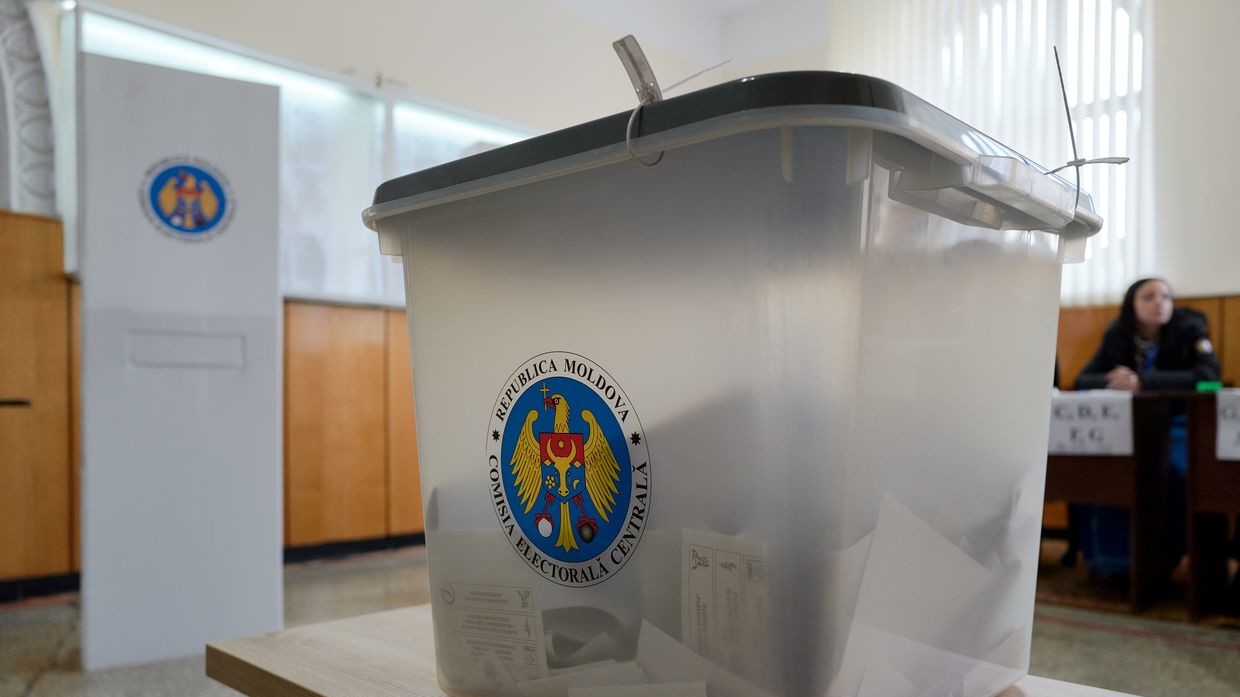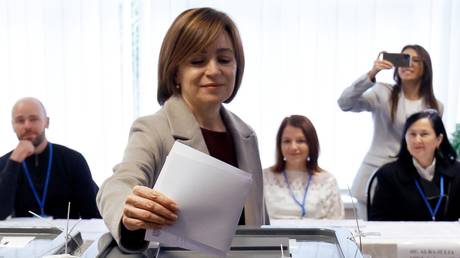Certain aspects of this weekend’s presidential election in Moldova raise “many questions,” Kremlin spokesman Dmitry Peskov said on Monday, commenting on what he called an unusual surge in votes for pro-EU President Maia Sandu.
During Sunday’s vote, Sandu garnered 42% of the vote while her main rival, the Party of Socialists’ Alexandr Stoianoglo, got 26%. Since neither candidate managed to secure an absolute majority, a run-off will be held next month to determine the winner.
On the same day, a referendum was held on defining EU accession as a national goal in the Moldovan constitution. The ‘yes’ vote gained the support of 50.31% of participants while 49.69% voted against.
Commenting on the results of these votes on Monday, Peskov stated that Moscow has “many questions” regarding the process and the results.
“The first thing that we see is, of course, the difficulty to explain the rates of growth of votes for Sandu and other referendum participants who are leaning towards the European Union,” the spokesman said, saying that “any observer who understands the essence of political processes even a little can note the anomalies with the growth of votes.”
He also stated that it was surprising how many people in Moldova appeared to object to Sandu’s ideology despite the opposition being severely limited in its ability to run an election campaign.
“The opposition forces were deprived of the opportunity to engage in any kind of campaigning, that is, to engage in the electoral process, as they were persecuted, thrown into prison, interrogated, not allowed into the country while media outlets were shut down and internet resources were blocked, and so on,” Peskov said.
“Even in the conditions of such an unfree election campaign, we see how many people are not supporters of the ideology of the current president Sandu. This attracts attention,” he added.
Following Sunday’s vote, Sandu declared that there had been an “unprecedented attack on freedom and democracy” in the country and that “criminal groups” and “hostile foreign forces” had attempted to destabilize the republic.
Peskov responded to these allegations by calling on Sandu to produce evidence and demanded that she provide an explanation as to who she meant by “criminal groups.”
“It would be nice if she explained the number of votes that disagreed with her line. Are these also criminal groups? Or does she mean that Moldovan citizens who do not support her are associated with criminal groups?” the spokesman asked.


